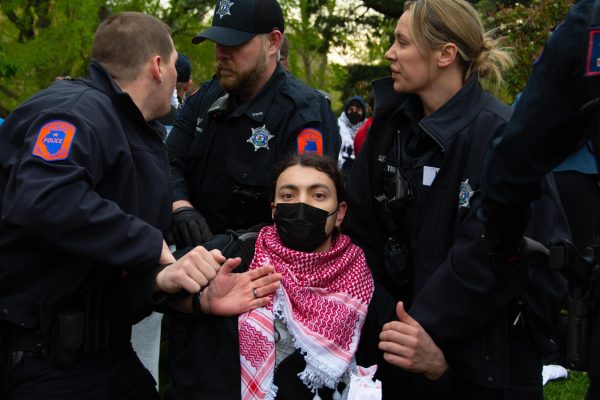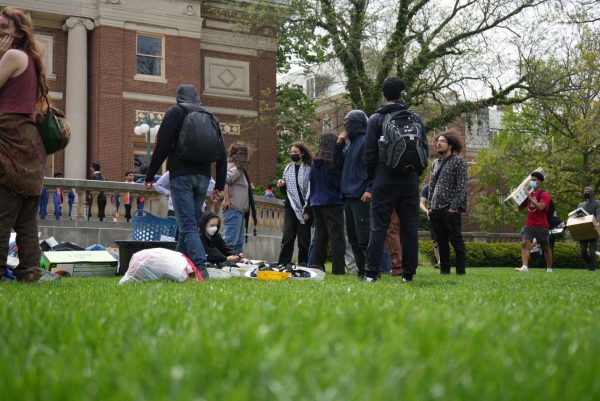Alternatives to work draw more grads
September 15, 2008
For a variety of reasons, increasing numbers of recent college graduates seem to be pursuing alternative paths rather than entering the workforce directly after graduating with an undergraduate degree.
According to an annual survey of what University of California-Berkeley students do upon graduating, conducted by the UC Berkeley Career Center, the number of graduates entering service programs, such as Teach for America and the Peace Corps, jumped from 14.3 to 19.2 percent from 2006 to 2007.
Suzanne Helbig, marketing coordinator and career counselor for the UC-Berkeley Career Center, said that on average, about 50 percent of recent college graduates obtain full-time employment, including service work, while 20 percent go directly to graduate school, an option which may appear more attractive to students who take the weaker economy into consideration.
However, Helbig cautioned that the decision to go to graduate school directly after the completion of an undergraduate degree should be thouroughly thought through.
“Going to graduate school is probably something you should do if it’s helping you reach your goals, probably not something to do just to wait out the job market,” she said. “Grad school is tough and if you’re not focused and engaged it’s going to be tougher.”
Get The Daily Illini in your inbox!
Career Center Director Tom Devlin said that despite concerns about the weakness of the job market, accomplished college graduates are in high demand, as employers seek to replace the large group of Baby Boomers who will retire within the next five years.
“Based upon the employer activity that we are witnessing in terms of career fairs, job listings and on-campus interviews, it looks like it will be a relatively good job market for college graduates … which is contrary to what is happening in the national scene,” he said. “There is tremendous competition among employers for top-notch students.”
Devlin said one exception to this strong market was in the area of investment banking, which has been slightly weaker in on-campus recruiting than in years past.
Even if traditional job opportunities do not seem scarce, service organizations like Teach for America and the Peace Corps have recently seen spikes in the number of applications.
At Teach for America, a program that places college graduates directly into teaching positions in rural and urban schools, the number of applications are up 36 percent in 2008 with more than 24,700 received so far this year. In an e-mail, Recruitment Communications Director Lorraine Anderson said she attributes the increase to a desire among students to serve their communities.
The Peace Corps, a program run by the United States government that facilitates community service abroad, also saw a 14 percent increase in applications this year, according to Nathan Hale Sargent, public affairs specialist for the organization.
Sargent and Anderson both said they do not believe it is the economic climate that is motivating graduates to join their organizations, but rather students’ passion for volunteering and the skills both organizations teach.
“I think it’s sort of a renewal in the interest in service,” Sargent said. “If you do the Peace Corps you develop skills beyond what you’ve learned in college, you develop leadership and learn a lot more about yourself. It’s also a great launchpad for a career, especially if you want to work overseas.”






